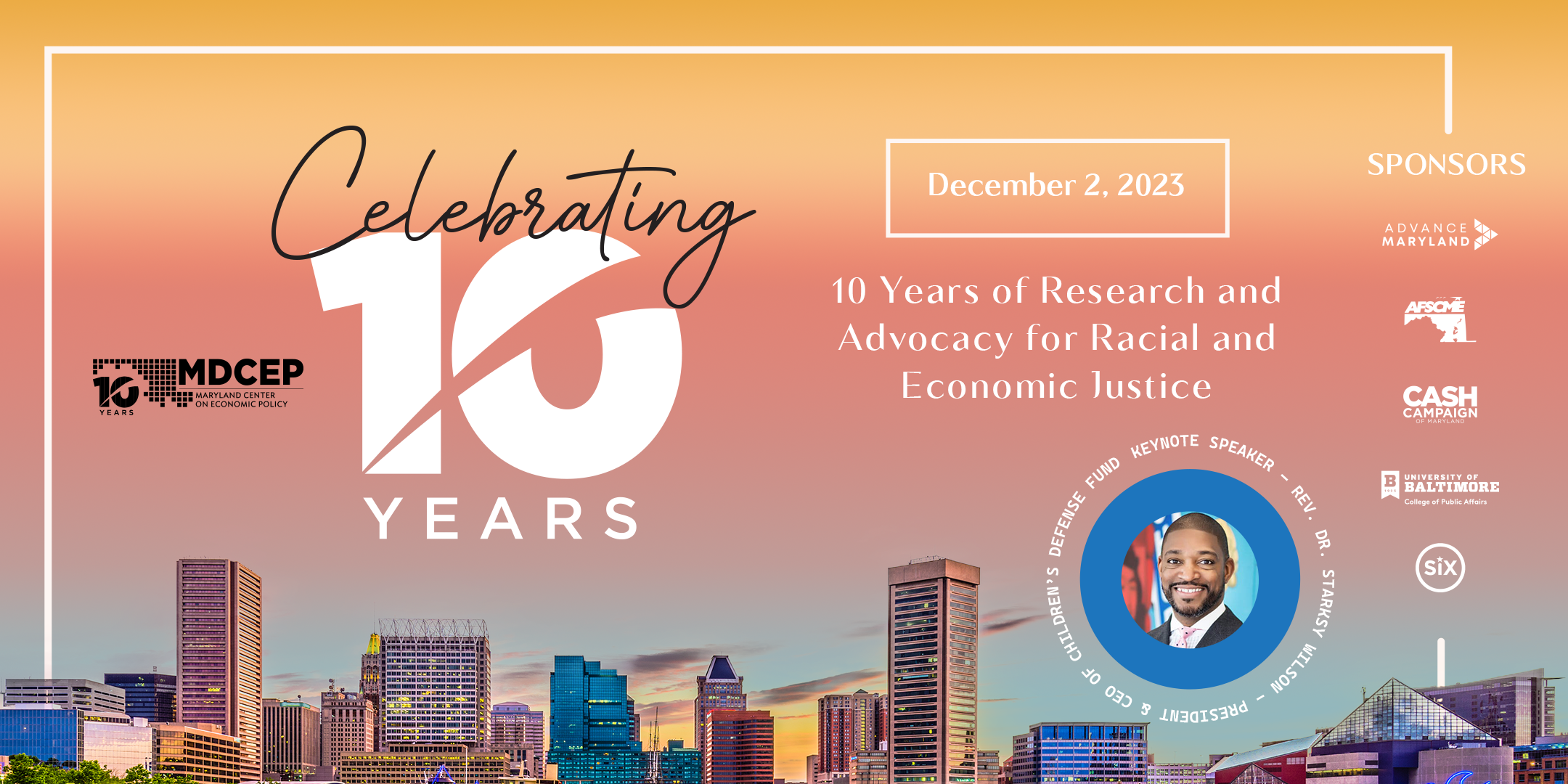Event Archive: MDCEP 10th Anniversary and Policy Summit

In 2023, MDCEP celebrated 10 years of research and advocacy for racial and economic justice. Our annual policy summit marked MDCEP’s first decade of advancing policy change, expanding economic opportunity, and bettering the lives of all Marylanders no matter what they look like or where they live.
Keynote Speaker
Rev. Dr. Starsky Wilson spoke about how we can play a key role in shaping the future of Maryland’s children. His keynote addressed child well being with a racial and ethnic equity lens and the steps we can take to make a difference.
Rev. Dr. Starsky Wilson is president & CEO of the Children’s Defense Fund (CDF) and CDF Action Council. CDF envisions a nation where marginalized children flourish, leaders prioritize their well-being, and communities wield the power to ensure they thrive. He is the board chair for the National Committee for Responsive Philanthropy and vice chair for the Forum for Theological Exploration.
Welcome From Comptroller Brooke Lierman
Panel Discussions
The Future of The Workforce
Working people are the backbone of our economy. We ought to ensure that all workers, whether or not they choose to become union members, have meaningful protections and a high standard of living. Maryland and other parts of the country have seen a rise in organizing activity over the last few years and the fight to improve workers standard of living is still happening. In this conversation, panelists discuss what can we do to ensure working people are supported as they seek justice and advocate for themselves as well as highlight the progress we’ve made with labor policies.
Panel includes Ricarra Jones, Political Director of 1199SEIU Healthcare Workers East, as moderator; Nelson Vilche, a worker-organizer from the Starbucks Workers United campaign; Christopher Meyer of MDCEP; and Nalia Rosario, Political Director for One Fair Wage.
The Racist History of Property Tax Caps
Property taxes are the most significant tool local governments have to fund schools, bus service, parks, libraries, health departments, and other essential public services. Artificial limits on property taxes can starve communities of the resources they need to thrive, over time leading to worse outcomes for students and other harms. Like many aspects of our tax code today, the history of property tax caps dates to the Reconstruction period, as white landowners tried to limit the new rights of Black Americans. In this conversation the panelists discuss how the racist history of property tax caps echoes today and how current policies are affecting Maryland communities.
Panel includes Rev. Dr. Kevin Slayton of MDCEP as moderator, Prof. Andrew Karhl from University Virginia, and Brakeyshia Samms of Institute on Taxation and Economic Policy.
